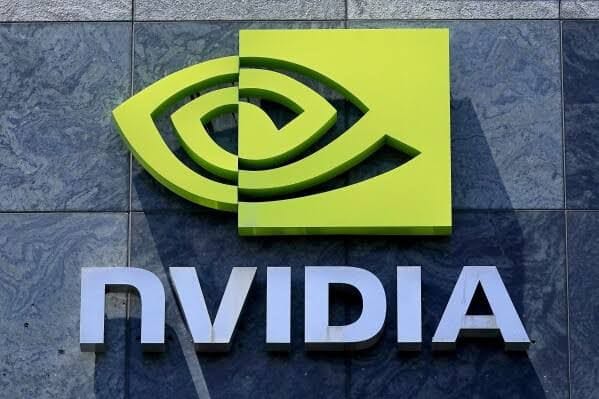China escalates its Nvidia antitrust probe during U.S. trade talks, raising stakes in the global chip race and fueling semiconductor market tensions.
China has widened its Nvidia antitrust probe, intensifying scrutiny on the U.S. chip leader at a time when semiconductor disputes are reshaping global power dynamics.
The announcement landed as Beijing and Washington officials entered their second day of delicate trade talks in Madrid, underscoring how technology and geopolitics remain inseparable.
Beijing confirms deeper investigation
The State Administration for Market Regulation (SAMR), China’s top antitrust body, declared on Monday that its preliminary findings showed Nvidia had breached provisions of the Anti-Monopoly Law.

“Following a preliminary investigation, it has been determined that NVIDIA Corporation has violated the Anti-Monopoly Law of the People’s Republic of China,” SAMR said.
The agency confirmed it would pursue a more detailed probe “in accordance with the law.”
Yet, the statement avoided specifics, leaving open questions on whether the concerns involve pricing, supply practices, or Nvidia’s dominant position in the graphics processing unit (GPU) and artificial intelligence (AI) chip markets.
“This is classic regulatory ambiguity,” said one Beijing-based trade analyst. “By withholding details, SAMR keeps Nvidia and other U.S. firms guessing about how far China is prepared to go in using competition law as a strategic tool.”
Why Nvidia sits at the center
Few companies illustrate the intersection of business and geopolitics like Nvidia. The California-based firm has transformed from a gaming GPU maker into a linchpin of the AI revolution. Its processors now power advanced data centers, autonomous vehicles, and state-of-the-art machine learning models.
For China, Nvidia’s products are critical to its ambitions in artificial intelligence. Local companies, research institutes, and start-ups have long relied on the firm’s technology to push the boundaries of AI innovation.
That dependency makes the Nvidia antitrust probe not only a legal issue but also a flashpoint in the contest for technological sovereignty.
Semiconductor rivalry intensifies
The investigation highlights the larger backdrop: a semiconductor rivalry that has become the defining feature of U.S.-China economic competition.
Chips are no longer viewed merely as components for consumer electronics but as strategic assets underpinning military strength, economic resilience, and digital futures.
Washington has already imposed strict export controls to limit China’s access to advanced processors, a move directly affecting Nvidia’s sales.
In response, Beijing is doubling down on building its domestic chip ecosystem through heavy investment in firms like SMIC and Huawei’s HiSilicon.
“The semiconductor race is the new arms race,” noted a technology strategist in Singapore.
“Every probe, export ban, or subsidy package is part of a bigger struggle for dominance.”
Risks for Nvidia and global markets
For Nvidia, the risks are significant. China represents one of its largest markets, and restrictions there could undermine future growth.
The company has already created modified chips to comply with U.S. export rules, but a regulatory squeeze from Beijing could further erode its foothold.
Global investors are also watching closely. Nvidia’s stock has soared on the back of AI-driven demand, but its reliance on international markets leaves it vulnerable to geopolitical shocks.
“Any prolonged or punitive outcome from this Nvidia antitrust probe could shave billions off its market value,” warned a Hong Kong-based equities analyst.
Meanwhile, a clampdown on Nvidia could accelerate China’s pivot to homegrown chip solutions, reshaping global supply chains and forcing Western firms to rethink their dependence on Chinese 00
Symbolism in timing
The timing of the probe announcement was striking. Roughly an hour before SAMR issued its statement, U.S. and Chinese negotiators resumed their trade discussions in Madrid. Officially, the two events are unrelated, but the overlap has been widely read as symbolic.
Both sides are seeking to resolve disputes over tariffs, intellectual property, and technology transfer. Yet the Nvidia case highlights the difficulties of separating commercial talks from the strategic mistrust that now defines the bilateral relationship.
“This isn’t just about antitrust law,” said an EU trade observer.
“It’s about signaling. China is reminding Washington that access to its market is conditional and politically sensitive.”
Multinationals caught in crossfire
Nvidia is not alone in facing regulatory friction. U.S. firms such as Qualcomm, Microsoft, and Apple have all been scrutinized by Chinese authorities in recent years.
Conversely, Chinese tech giants like Huawei, TikTok, and ZTE have been restricted or investigated in the United States and allied countries.
This pattern reveals how multinational technology firms often become bargaining chips in broader geopolitical rivalries. They are forced to navigate competing legal regimes, national security concerns, and shifting political winds—sometimes at the expense of stable business operations.
The bigger picture
The Nvidia antitrust probe is emblematic of a world where technology disputes are no longer confined to corporate boardrooms. Instead, they shape alliances, trade flows, and even security strategies.
For Beijing, the investigation serves as both a legal tool and a strategic message. For Washington, it underscores the fragility of U.S. firms’ access to the Chinese market. And for Nvidia, it is a stark reminder that commercial success in semiconductors now comes with unavoidable geopolitical risk.
As the probe unfolds, the global tech community will be watching for clues about whether this is a targeted case or the beginning of a broader regulatory pattern against U.S. firms in China. Whatever the outcome, the case illustrates that semiconductors are no longer just about circuits and silicon—they are at the heart of global power struggles.


